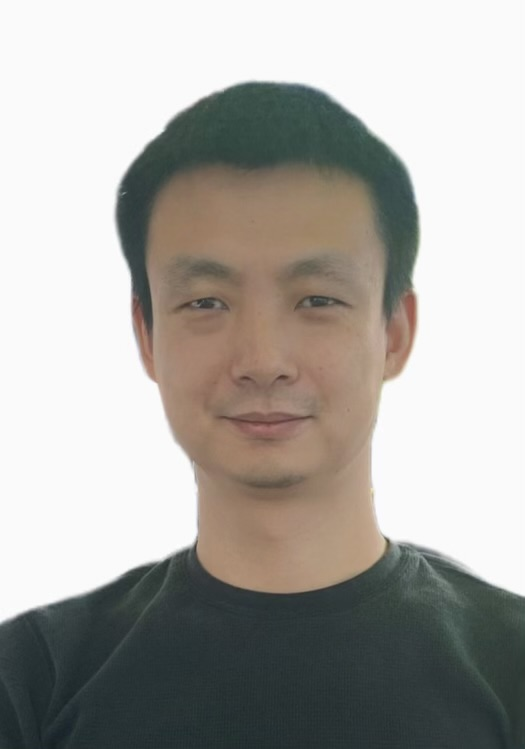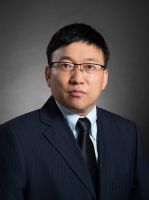
Professor Feng Siqian, PhD
Email: feng.siqian@seu.edu.cn
Lab and Office:Rm B-203 Hui Chuan Bldg., Jiang Bei Campus, Southeast University
Biography:
Dr. Feng received his bachelor’s degree in bioengineering from Shanghai Jiao Tong University in 2004, and his PhD degree in molecular and cell biology from University of Maryland at College Park in 2011. He then joined Columbia University as a postdoctoral researcher in Dr. Richard Mann’s lab, studying how Hox proteins regulate their target transcription. He was later promoted to Associate Research Scientist at Columbia. In August of 2023, Dr. Feng joined the School of Life Sciences and Technology at Southeast University as a professor and principal investigator (PI). He was also appointed as a Jiangsu Distinguished Professor in 2023.
Research:
We are interested in studying the molecular mechanisms of eukaryotic transcription, as well as the roles of transcription in animal development and evolution. Currently, there are 3 ongoing research directions in the lab:
1. The molecular mechanisms of eukaryotic transcription. Every cell must precisely regulate their gene expression, and transcription is arguably the most critical regulatory step in gene expression. My lab is using Drosophila Hox proteins as the model, to study how transcription factors regulate their target gene expression in different cell types in vivo. We use a combination of cutting-edge whole genome approaches and classic techniques in genetics and developmental biology to achieve both systems level characterization and in-depth mechanistic understanding of transcription factor activities in vivo.
2. The mechanisms underlying the evolution of brand-new body structures. During the course of animal evolution, brand-new body structures often emerge. These novel structures, such as the wings of insects and the placentas of mammals, can confer significant selective advantages to animals bearing them. How novel body structures were first evolved is one of the most significant unanswered questions in the field of evolutionary-developmental biology (EvoDevo). Current evidence suggests a major role of transcription regulation, but many critical details remain unknown. My lab is leveraging our strong background in transcription research to study how insect wings were evolved. We hope to reveal general principles underlying novel body structure emergence during evolution.
3. The development of new techniques. New techniques play critical roles in advancing scientific research. My lab is developing novel techniques in genomics and molecular biology, to achieve research goals that are difficult or impossible to reach with existing techniques. Recently, we applied the covalent protein-protein interaction between SpyTag and SpyCatcher in vivo, and successfully obtained tissue-specific transcription factor-DNA binding data without tissue dissociation and cell sorting. We are developing more covalent protein-protein interaction-based tissue-specific genomic techniques.
Selected publications:
Siqian Feng# and Richard. S Mann#. Scarless modification of the Drosophila genome near any mapped attP sites. Current Protocols. 3(8):e855 (2023). #co-corresponding author
Siqian Feng, Chaitanya Rastogi, Ryan E. Loker, William J. Glassford, H. Tomas Rube, Harmen J. Bussemaker, and Richard S. Mann. Transcription factor paralogs orchestrate alternative gene regulatory networks by context-dependent cooperation with multiple cofactors. Nature Communications. 13(1):3808 (2022).
Siqian Feng# and Richard S. Mann#. SpyChIP identifies cell type-specific transcription factor occupancy from complex tissues. PNAS, 119(25): e2122900119 (2022). #co-corresponding author
H. Tomas Rube, Chaitanya Rastogi, Siqian Feng, Judith F. Kribelbauer, Allyson Li, Basheer Becerra, Lucas A. N. Melo, Bach Viet Do, Xiaoting Li, Hammaad H. Adam, Neel H. Shah, Richard S. Mann, and Harmen J. Bussemaker. Probing molecular specificity with deep sequencing and biophysically interpretable machine learning. Nature Biotechnology. 40(10):1520-1527 (2022).
Siqian Feng#, Shan Lu, Wesley B. Grueber and Richard S. Mann#. Scarless engineering of the Drosophila genome near any site-specific integration site. Genetics. 217(3), iyab012 (2021). #co-corresponding author
Judith F. Kribelbauer, Ryan E. Loker, Siqian Feng, Chaitanya Rastogi, Namiko Abe, H. Tomas Rube, Harmen J. Bussemaker and Richard S. Mann. Context-Dependent Gene Regulation by Homeodomain Transcription Factor Complexes Revealed by Shape-Readout Deficient Proteins. Molecular Cell. 78(1):152-167.e11 (2020).
Siqian Feng, Steffi Thomas and Jian Wang. Diverse tumor pathology due to distinctive patterns of JAK/STAT pathway activation caused by different Drosophila polyhomeotic alleles. Genetics. 190(1):279-82 (2012).
Siqian Feng*, Jianhua Huang* and Jian Wang. Loss of the Polycomb group gene polyhomeotic induces non-autonomous cell proliferation. EMBO Reports. 12(2):157-63 (2011). *co-first author




